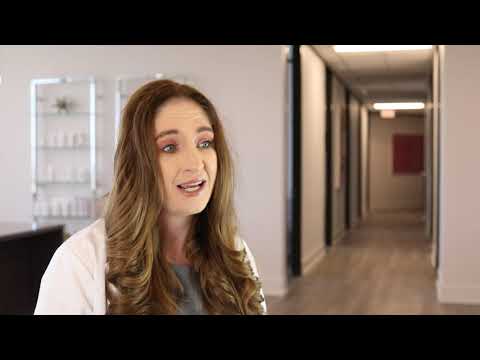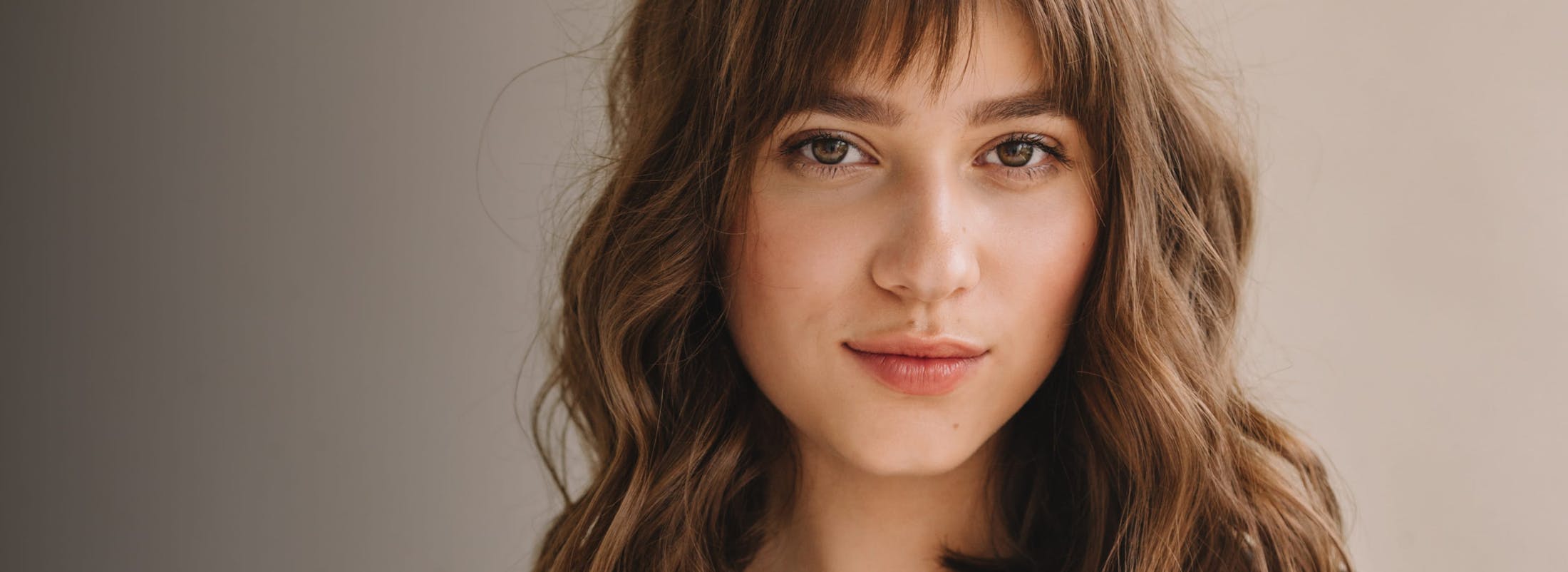To answer the question on how long a blepharoplasty lasts, we need to first define blepharoplasty. Most people call it an eye lift and that’s exactly what it is. You can have an upper or lower blepharoplasty. In an upper blepharoplasty we remove the extra skin above your eyelids that causes hooding or a heaviness to the lids that can make your eyes look smaller. Removing that skin opens up the eyes right up. For those who have bags or excess skin under the eyes, we perform a lower blepharoplasty by removing fat and/or excess skin to smooth out that area.
Changes to the skin around the eyes is typically genetic. Most times you can look at your family members and see where things might be going, so I tend to see people a little bit earlier in life when the first signs appear. Patients might tell me that their mom, or everybody in their family, have really heavy eyelids or a lot of their family members have already had this procedure done. For this reason I will typically see patients who are somewhere in their 40s, maybe early 50s, who are beginning to see changes to their lids.
The great thing about it being genetic versus it just being an aging thing, is that once we fix it, the results usually last a very long time. While you may see some more aging to the eyes, it could be another ten to fifteen years before you start to see these changes. Now keep in mind that with an upper blepharoplasty, that time might be shortened depending on the position of the brows. If a patient comes complaining about heaviness in the upper lid, but they also have brows that have descended, we can fix the lids but the brows will continue to descend which shortens the lasting results of the upper blepharoplasty to three to five years, if not sooner.
In those cases, it’s worth it to address the lids and brows at the same time, but I understand that some people just want to correct their lids, even when they’re aware that the results might only last up to five years. They may choose to deal with their brows when they come in for their next blepharoplasty. However, we do get a lot of patients who prefer to do their lids and brows at the same time so they don’t have to come back and deal with this again. In those cases, I look at the position of the brows and how that position has changed from today to five years ago to 10 years ago? If the brows have lowered over those time periods, I’ll do a brow lift where I lift the brow two to four millimeters. That lift opens up the eye, and then if there is still some excess skin, I’ll do the upper blepharoplasty to remove it.
This is why it’s important to find a surgeon with whom you can discuss your options and get the whole picture to make sure you make an informed decision. If the descended brows are a genetic thing, the results will last for ten to fifteen years, and for some, a whole lifetime. Unlike a facelift that addresses aging skin, when it comes to the eyes and genetics, once it’s fixed it won’t really come back
How long does a lower blepharoplasty last?
Since the changes around the eyes are genetic, for most people, a lower blepharoplasty can last for the rest of their lives because once you remove the fat, it doesn’t come back. Any changes that you might see ten to fifteen years down the line, might just be normal aging and you can come back to remove any extra fat that might have formed, but for the most part, the results last a very long time.
One thing you should discuss with your surgeon is the position of your eyes. If you have deep set eyes, you don’t want too much fat removed because that is something that can cause problems down the line. If too much fat is taken out, it can result in hollowness, which can make you look older. There’s a fine balance between removing too little and too much fat. You and your surgeon have to look at the short term and the long term.
What is the best age for blepharoplasty?
The best age for a blepharoplasty is the time when a patient begins to see heaviness or bagginess in their lids. Since it’s genetic, I tend to treat younger people who are seeing the early signs of eyelid conditions that are already visible in their family members. Typically, I’ll see people who are in their forties, as well as their 50s and 60s, and every once in a while I’ll see someone as early as in their thirties with genetically heavy upper lids or baggy lower lids.
A blepharoplasty is a very simple surgical procedure. While it’s still surgery with incisions to be made, the recovery time is only about a week with some stitches and a little bit of swelling. Patients typically feel good the next day or so. This is why this surgery appeals to the younger age category, those in their 30s and 40s, who have kids and work and are trying to fit this in. With little downtime, they are able to get it done and continue on with life.
If you have questions, call or email any time. I help people like you every day and would love to talk.
Have questions? I’d sincerely love to hear from you.
Call me at (281) 336-9300
Read More
Eye Lift Before & After Photos
The Definitive Guide to Eyebrow Transplants
The Ultimate Guide to Morpheus8 Treatments
About Dr. Angela Sturm
Dr. Angela Sturm is a double-board certified facial plastic surgeon with certifications with the American Board of Otolaryngology – Head and Neck Surgery and the American Board of Facial Plastic Surgery. Dr. Sturm’s meticulous nature makes for exceptional results and satisfied patients. Dr. Sturm was named Texas Monthly’s Super Doctors Rising Star in 2016-2017, Texas Monthly’s Super Doctor in 2018-2019, H Texas Magazine’s Top Doc in 2013-2018, Top Doc by Houstonia Magazine in 2016-2018, Houston Business Journal’s People on the Move and 40 under 40, Blazing Star Award by Texas Women’s Chamber of Commerce, Top Women in Business, one of the Top 30 Influential Women of Houston, Best Female Cosmetic Surgeon in Out Smart, and given the Patient’s Choice Award, On Time Doctor Award and Compassionate Doctor Award by Vitals.com.


